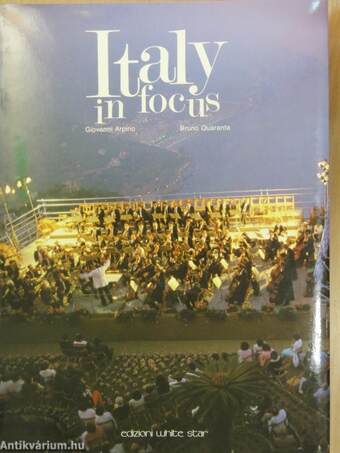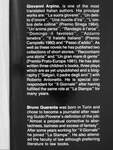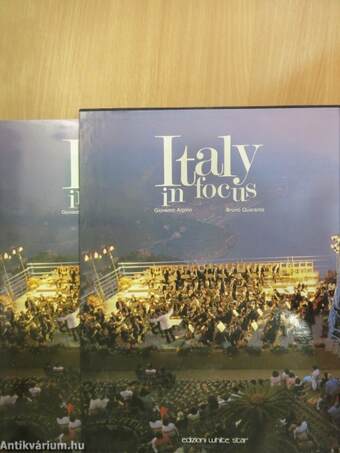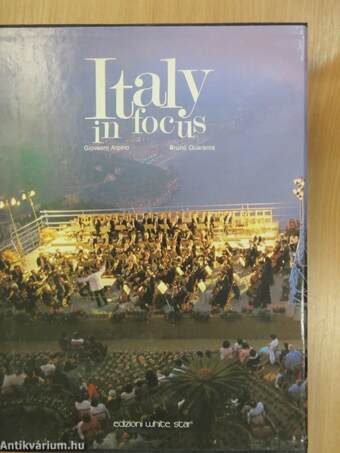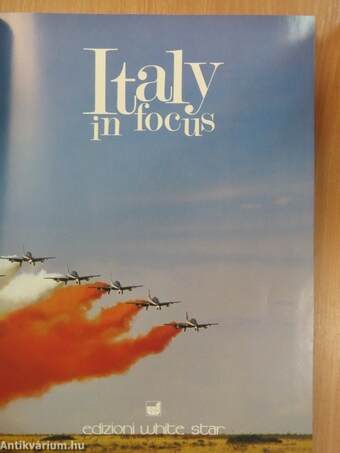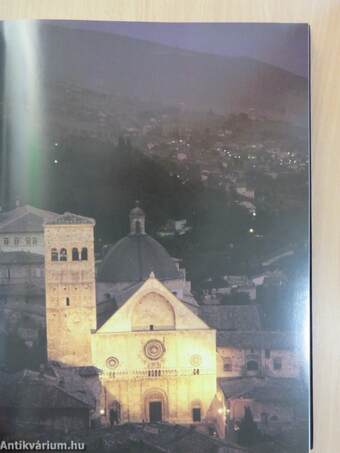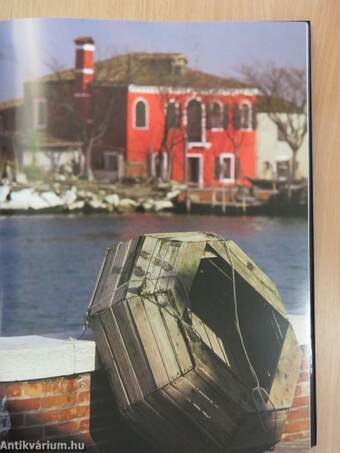1.118.555
kiadvánnyal nyújtjuk Magyarország legnagyobb antikvár könyv-kínálatát
Italy in Focus
| Kiadó: | Edizioni White Star |
|---|---|
| Kiadás helye: | Vercelli |
| Kiadás éve: | |
| Kötés típusa: | Fűzött kemény papírkötés |
| Oldalszám: | 240 oldal |
| Sorozatcím: | |
| Kötetszám: | |
| Nyelv: | Angol |
| Méret: | 32 cm x 25 cm |
| ISBN: | |
| Megjegyzés: | Színes fotókkal gazdagon illusztrált album. Eredeti védődobozban. |
naponta értesítjük a beérkező friss
kiadványokról
naponta értesítjük a beérkező friss
kiadványokról
Fülszöveg
Giovanni Arpino, is one of the most
translated Italian authors. His principal
works are: "La suora giovane", "Un delit-
to d'onore", "Una nuvola d'ira", "L'om-
bra delle colline" (Premio Strega 1964),
"Un'anima persa", "Randagio e I'eroe",
"Domingo-il favoloso", "Azzurro
tenebra", "II fratello italiano" (Premio
Campiello 1980) and "Passo d'addio". As
well as these novels he has published two
collections of short stories: "Raccontami
una storia" and "Un gran mare di gente"
(Premio Prato-Europa 1981). He has also
written three children's books, three plays
which are as yet unpublished and a biog-
raphy ("Salgari, il padre degli eroi") with
Roberto Antonetto. He is special cor-
respondant for "II Giornale" after having
fulfilled the same role at "La Stampa" for
many years. >
Bruno Quaranta was born in Turin and
chose to become a journalist after read-
ing Guido Piovene's definition of the job:
"Almost a perpetual corrective to absr-
tactness, laziness and... Tovább
Fülszöveg
Giovanni Arpino, is one of the most
translated Italian authors. His principal
works are: "La suora giovane", "Un delit-
to d'onore", "Una nuvola d'ira", "L'om-
bra delle colline" (Premio Strega 1964),
"Un'anima persa", "Randagio e I'eroe",
"Domingo-il favoloso", "Azzurro
tenebra", "II fratello italiano" (Premio
Campiello 1980) and "Passo d'addio". As
well as these novels he has published two
collections of short stories: "Raccontami
una storia" and "Un gran mare di gente"
(Premio Prato-Europa 1981). He has also
written three children's books, three plays
which are as yet unpublished and a biog-
raphy ("Salgari, il padre degli eroi") with
Roberto Antonetto. He is special cor-
respondant for "II Giornale" after having
fulfilled the same role at "La Stampa" for
many years. >
Bruno Quaranta was born in Turin and
chose to become a journalist after read-
ing Guido Piovene's definition of the job:
"Almost a perpetual corrective to absr-
tactness, laziness and excess of fantasy".
After some years working for "II Giornale"
he joined "La Stampa". He also attend-
ed the faculty of law although preferring
literature to law books. Vissza
Témakörök
- Idegennyelv > Idegennyelvű könyvek > Angol > Művészetek > Fotóművészet
- Idegennyelv > Idegennyelvű könyvek > Angol > Helytörténet
- Helytörténet > Külföldi > Egyéb
- Művészetek > Fotóművészet > Albumok > Külföldi
- Művészetek > Fotóművészet > Albumok > Tematikus
- Művészetek > Fotóművészet > Idegen nyelv > Angol
- Művészetek > Fotóművészet > Témái > Egyéb


